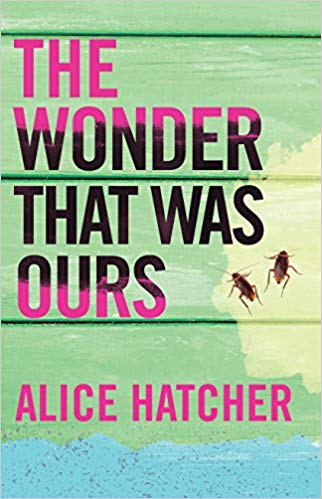Feeling annoyed ….
Today Turner Classic Movies is showing films based on books by great southern writers. Author John Grisham was roped in to help TCM host Robert Osborne do intros and outros for the films, presumably because Grisham is considered a modern southern writer.
I just watched Grisham’s comments about one of my favorite oddball movies from the 70s, “Wiseblood” directed by the great John Houston, and based on the novel (mistakenly referred to by Grisham as a short story) by the great Flannery O’Connor.
After the movie finished, Osborne asked Grisham why he was grumbling … yes grumbling … during the screening, and Grisham went on to complain about the film having too much religion (a little like blaming Moby Dick for having too much whale) and then talked in a dismissive way about the proclivity of old time southern writers to deal too much with religion. He had nothing to say about O’Connor herself, whose short stories command respect for her peerless mastery of the form.

Brad Dourif in John Houston’s “Wiseblood” (1979).
“Wiseblood” is admittedly a difficult and troubling movie, based on a difficult and troubling book. But both book and movie shine with brilliance and are deserving of greater respect from Grisham, and TCM.
Grisham, I understand, is a religious man. Wikipedia cites him referring to his conversion to Christianity as “the most important event” in his life.
Flannery O’Connor was very devout as well. She was also not afraid to write about religion. In fact, the subject permeates her work. She was a Catholic, although her writing is predominantly about the lives and fates of southern Protestants. I’m not sure if O’Connor focused on religion so extensively because it was of tremendous personal importance to her … or because she recognized religion’s shaping influence across the southern states and thought that was something worth writing about. Perhaps both. In any case, why is Grisham, a self-proclaimed religious fellow, not in greater sympathy with O’Connor’s writing?
The fact is, O’Connor’s religious south is far from a comforting place. It’s not full of genteel homilies out of Sunday school. It’s a fairly savage landscape, populated by often grotesque characters who are severely challenged with regard to such cardinal virtues as compassion and concern for others. They are often ignorant and self-satisfied. Racism is taken as a given.
So is violence. This is from her classic story, “A Good Man is Hard to Find”:
“She would have been a good woman,” The Misfit said, “if it had been somebody there to shoot her every minute of her life.”
In O’Connor’s world, life is short and stupid, but salvation, oddly enough, is around any corner. It comes at her characters like freight trains crashing through front parlor walls, taking them off guard, crushing them out of earthly existence, but bestowing that most valuable gift of enlightenment and grace, just when it is least expected.
O’Connor does not make religion, or the south, seem cozy or safe. Perhaps that’s what John Grisham doesn’t cotton to.
Said O’Connor about “Wiseblood”:
“It is a comic novel about a Christian malgre lui (in spite of himself), and as such, very serious, for all comic novels that are any good must be about matters of life and death.”
Not only did Grisham pass over O’Conner’s huge significance in 20th century literature, he also showed scant interest in the film’s director, John Houston, a monumental filmmaker who adapted Joyce and Melville and O’Connor and other literary heavyweights, with varying success. It seems unlikely Houston would have been interested in dramatizing one of Grisham’s potboilers.
But then, John Grisham has had 8 or 9 films made from his work, and Flannery O’Connor only one. I guess he gets the last laugh.
I’m just not sure TCM should have recruited him as an expert on great southern writers. Let’s just say, if you ask me what is next in this sequence … William Faulkner, Flannery O’Connor, Harper Lee, _________ … my answer wouldn’t be: John Grisham.










 In between, there are loads of Bradburian reminiscences from the perspective of our boy narrator, Cory. They are magical memories of small town growing up, awash in a romantic nostalgic afterglow. Tales of bullies, baseball, camping trips and nascent encounters with the mysterious species known as girls, as well as portraits of oddball locals like the rich guy’s grown son who walks around town stark naked. (Everyone in town is used to it.) There are also vignettes involving faithful dogs and a seemingly-enchanted bicycle with a personality all its own.
In between, there are loads of Bradburian reminiscences from the perspective of our boy narrator, Cory. They are magical memories of small town growing up, awash in a romantic nostalgic afterglow. Tales of bullies, baseball, camping trips and nascent encounters with the mysterious species known as girls, as well as portraits of oddball locals like the rich guy’s grown son who walks around town stark naked. (Everyone in town is used to it.) There are also vignettes involving faithful dogs and a seemingly-enchanted bicycle with a personality all its own.
